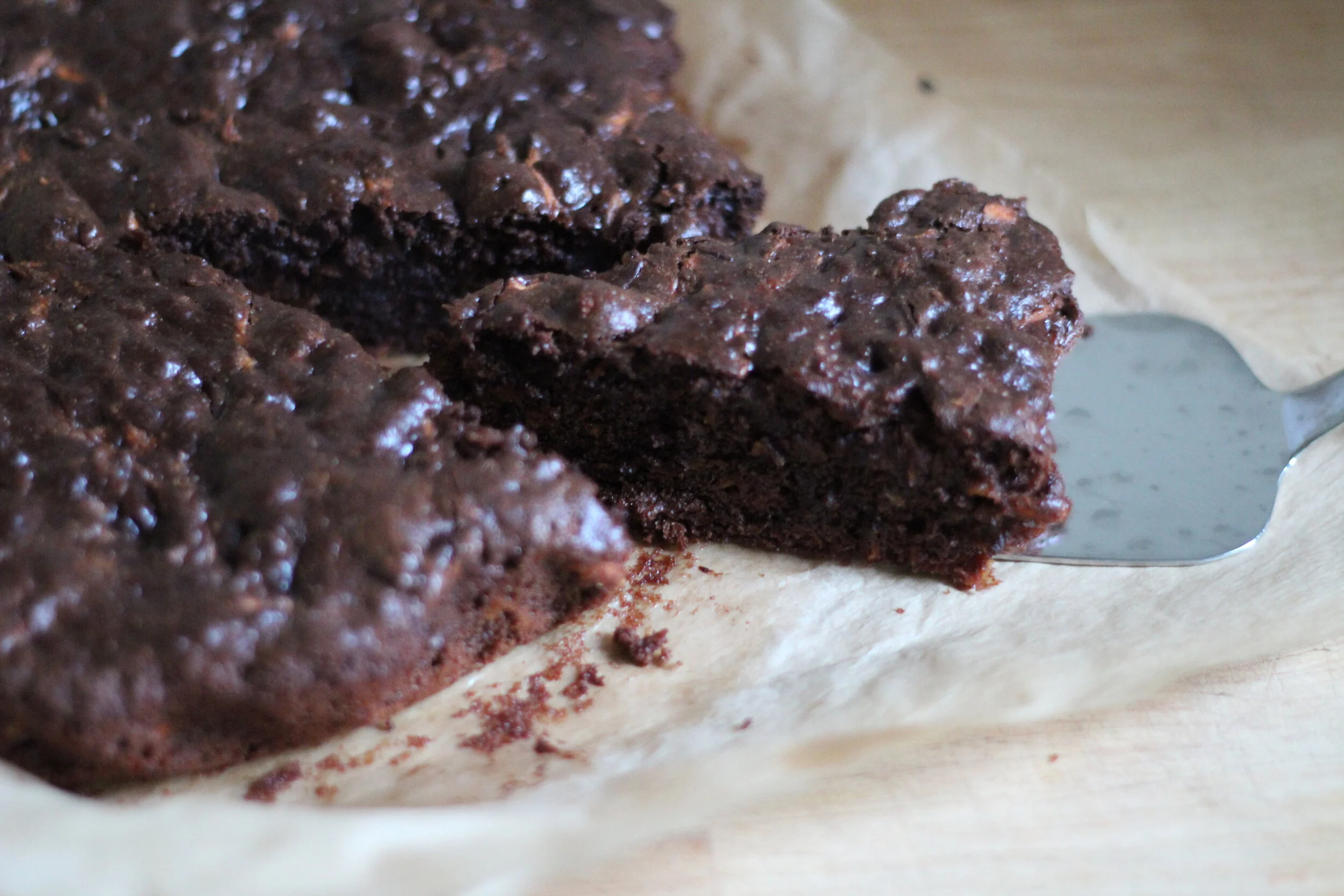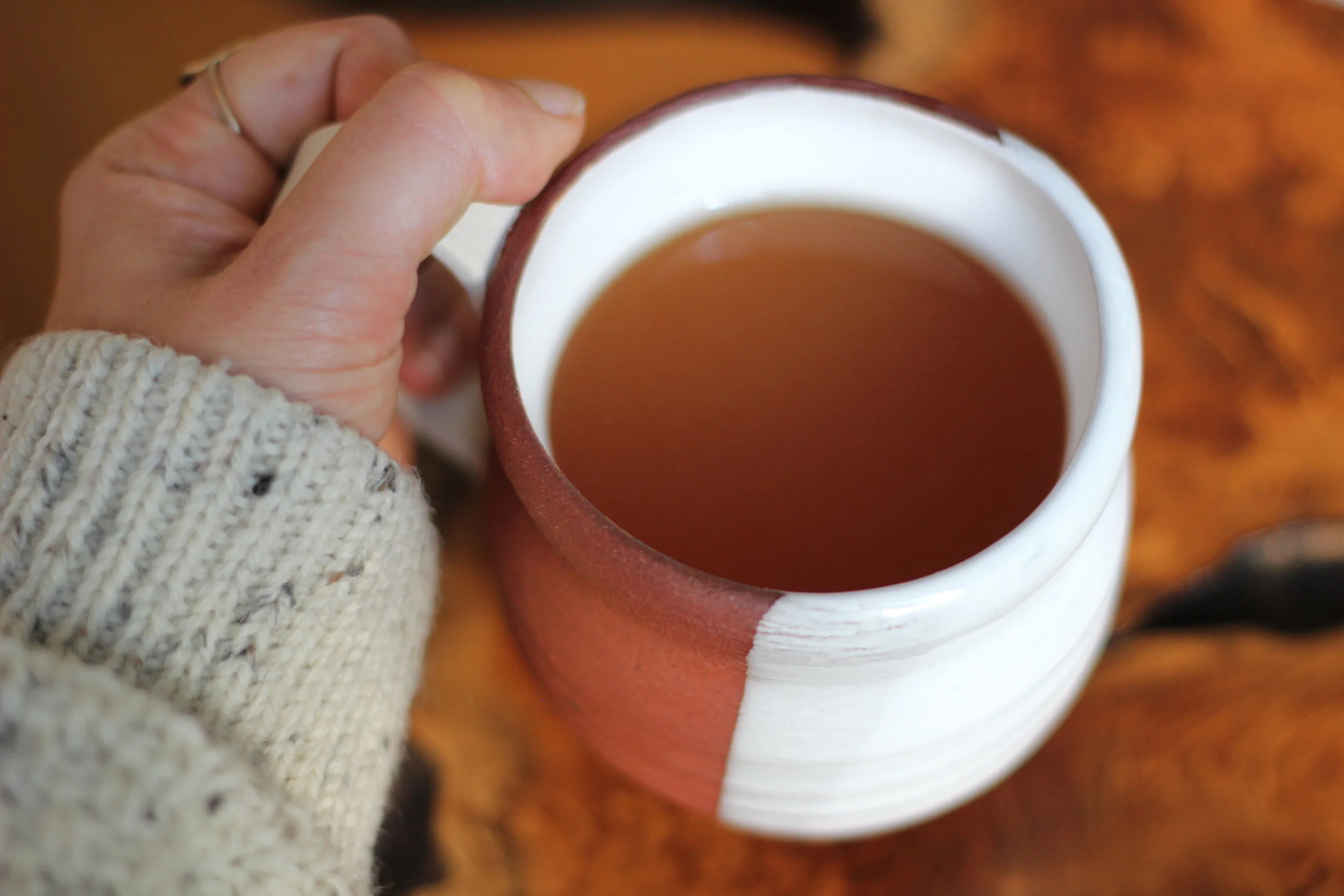You know that experience when you hear something SO simple and compelling that it stays with you for a really long time?! It sort of sticks itself somewhere near the surface of your psyche and subtly seeps in to your life on the regular, as often as you let it? Well, I have two such gems to share this week, which combine into a reframe that might just change your cooking experience for the better...
The first magical learning was delivered to me in a Tinder message I got last year. (For those of you who don’t know, Tinder is a dating app. And if you aren’t familiar with the world of online dating, messages from potential suitors can often be repetitive, boring greetings, so the fact that I’m still thinking about this opening line tells you it really made a mark!)
This person asked if I had ever listened to a meditation lesson by Sam Harris called "The Last Time." I hadn't, but I was intrigued, so I did, and it stuck. It’s 4 mins 40 seconds and I HIGHLY suggest you listen to it here because it’s kind of life changing. (I never heard from that guy again but I'm so glad he sent me that message!)
Essentially, it poses a simple observation: how often do we actually do something for the last time EVER, without even realizing it? And if we KNEW we were doing something for the last time, how much more would we savor it, even if it were something we don’t always enjoy doing? Harris suggests that becoming conscious of this can change - and improve! - our experience of doing mundane things that we may take for granted.
One everyday thing I recently realized I take for granted is my sense of smell! Ever since I listened to this podcast/article about it, I seriously can’t stop thinking about the importance of this sense to my everyday experience and pleasure. It’s 55 mins long and I HIGHLY recommend it! (Can you imagine - not being able to distinguish dirty laundry from clean?! That would be SO annoying! And if you had Covid and haven’t recovered your smell, I am SO SO sorry - it seems absolutely awful and much more depressing than its loss is given credit for, as is illustrated in the article/podcast.)
My main takeaway from the podcast was how much we undervalue our sense of smell and underestimate just how much practical information and meaning it contributes to our everyday lives. As a cook and food-obsessed-person, I think I’m slightly more aware of how important this sense is to me, but still, this podcast really brought it home.
Since listening, I’ve noticed just how often my nose saves me from burning things. I’m appreciating how easily and unthinkingly I distinguish subtleties between "fresh," "a tad stale," "on its way out," or "gone bad."
As you probably know, there are only 5 different "tastes" (sweet, salty, sour, bitter, umami), but the human nose can detect about 1 TRILLION smells. Smell is completely crucial to our experience of taste and flavor.
DID YOU KNOW that when you eat, you can actually smell the food that is already in your mouth? This is one of my favorite smell/taste fun facts that I learned in Michael Pollan’s book Cooked, in which he explains this "retronasal olfaction"…
"‘Retronasal olfaction’ is the technical term for our ability to smell food that is already in our mouth. Whereas the nose’s olfactory sense - ‘orthonasal olfaction’ - identifies smells when we sniff in, retronasal olfaction identifies smells when we breathe out, as the molecules released from our food rise from the back of the mouth up into our nasal passages. Orthonasal olfaction allows us to identify smells from the outside world, including smells from foods we are deciding whether to ingest. The purpose of retronasal olfaction is different, as is the range of compounds it detects and the regions of the brain to which it reports. The signals from retronasal smell are interpreted at the highest levels of our cerebral cortex as well as in regions involved in memory and emotion. This has led some scientists to hypothesize that the function of retronasal smell may be primarily analytical, helping us to archive the vast catalog of food flavors and record them in memory for future use." (from pg 249 of Cooked)
Are you having smell memories while looking at this picture of chocolate cake?! I AM, and it's making me want some!!
The power of smells and the meanings associated with them can be breathtaking when we give them our attention. In the "Last Time" lesson, Sam Harris posits that our attention - even more than our time - is our most valuable resource and our decisions on where to direct it lends us the most opportunities to create a meaningful, rich life. Time can easily be wasted. True attention paid is a gift when it's given and when it's received.
One thing I deeply believe in is that the *experience* of cooking can be equally as pleasurable and important as the end result, if we let it. (Hot tips on that here.) As we spend more and more time on our screens and take in marketing messages selling us the promise of "more time" (probably to spend on more screens) through convenience, I will stand firm by my admission that the ACT of cooking may be just as nourishing as the nourishment it produces! Cooking is a rare activity that makes the most of (if not requires!) the use of ALL our senses. It's an activity that can be an opportunity to ground ourselves in the wonder of our bodies' capabilities - while also transporting us through space and time via the power of memories.
If - when you're cooking - you're just "getting through" the experience so you can eat, I encourage you to give this a try: pay just a little more attention - maybe even bring some of that "what if this was the last time?" curiosity and appreciation to your actions. Notice how the smells change over the course of the experience (You can still do this even if you're just microwaving a meal)!
The *experience* of cooking can be whatever YOU make it. Instead of "have to" cook tonight, maybe you "GET TO" cook tonight! I'm not saying I always feel this way - definitely not. But I do find that my new attention to my sense of smell (and admittedly, the threat of covid's ability to kill it) has made me appreciate my cooking experiences more acutely, and more often, with a heightened appreciation knowing that I might not know when it will be the last time. I hope you can also choose - just a little more often - to make your experience of cooking as joyful and meaningful as you can :).
And that's your food for thought for today! Happy cooking (and smelling and appreciating)!
love,
Jess



